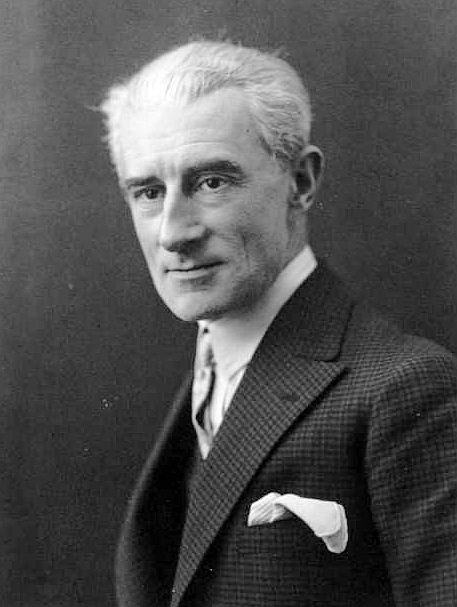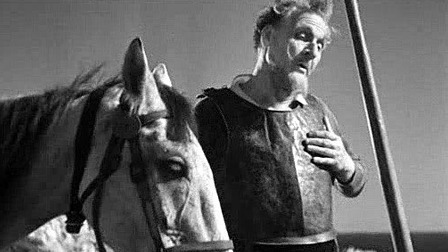Don Quixotte à Dulcinée
Ainsi vidé ne vous plaît point,
Chevalier dieu, la lance au poing.
J'étoilerais le vent qui passe.
thus emptied, did not please you,
Gods knight, lance in hand,
I would bespangle the passing wind the with stars.
This three-song suite was commissioned by the Austrian film director G.W. Pabst for his 1933 film adaptation of Don Quixote. Originally Maurice Ravel was asked to compose four pieces, yet his own medical complications slowed his progress and was eventually fired as composer, with only these three songs completed. These are Ravel’s final composed works before his death in 1937.
Chanson romanesque is a sweet ballad in which Don Quixote proclaims his dedication to his princess Dulcinea, telling of the lengths—including death—to which he’ll go to win her affection. In Chanson épique, Don Quixote sings a prayer to St. Michael for blessings and protection of both him and Duclinea. The soprano is accompanied by bar chords of piano in imitation of a church organ, giving the piece a spiritual tone. The final piece Chanson à boire is a jovial upbeat waltz in which Don Quixote sings about the happiness drinking brings him. The odd, shifting time signature makes the piece stagger back and forth, like a drunken knight in armor.
These pieces show Don Quixote expressing himself as a romantic, a holy knight, and a drunk. The third piece is a little uncharacteristic for how the character is seen in the novel; however, it shows his role as a comic character in contrast with the more knightly virtues emphasized by the first two pieces. This suite reflects on Don Quixote’s standing as a character beloved by society—dedicated to his cause, yet flawed and funny all the same.
-- Christian Fagre
Work Cited
Gailey, Meredith. “Don Quichotte À Dulcinée, Song Cycle for Voice & Orchestra (or Piano).” AllMusic, n.d. Web. 2 Dec. 2015.


